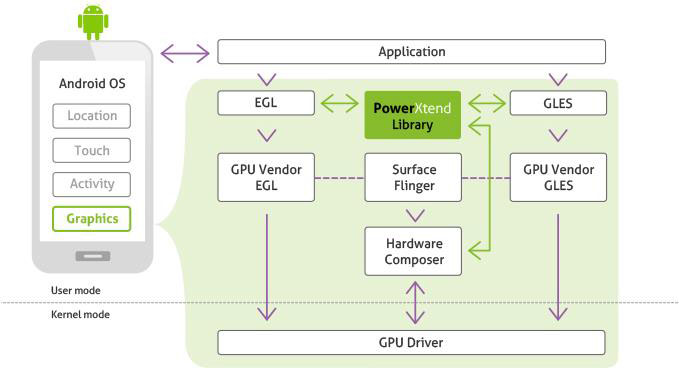- Qualcomm Launches Snapdragon 4 Gen 2 Mobile Platform
- AMD Launches Ryzen PRO 7000 Series Mobile & Desktop Platform
- Intel Launches Sleek Single-Slot Arc Pro A60 Workstation Graphics Card
- NVIDIA Announces Latest Ada Lovelace Additions: GeForce RTX 4060 Ti & RTX 4060
- Maxon Redshift With AMD Radeon GPU Rendering Support Now Available
CES 2014: Lucid’s PowerXtend Technologies Can Improve Mobile Battery-life up to 50%
I’m confident that most people would agree that performance is an important aspect of our mobile devices, but I’m also certain that most who believe that would still weigh battery-life just a bit higher. No one likes being out on the road using a device they need that’s skirting the critical battery line.
As our mobile devices get ever faster, though, overall battery-life doesn’t seem to change all too much. This is something the folks at Lucid clearly noticed, so they developed a family of technologies that fall under the “PowerXtend” umbrella. These include WebXtend, GameXtend, and NavExtend (GPS-related). In the best cases, either of these technologies can improve battery-life by up to 50%. Claims like that sound a bit outlandish, but given how much power our mobile devices can waste (ever check out an Android task manager?), it doesn’t strike me as too much of a surprise.
GameXtend, no doubt the most impressive of the three, integrates itself with the GPU pipeline to optimize resource control in order to reduce power consumption without impacting a game’s smoothness.

The big difference between Lucid’s Xtend tech compared to simpler methods like arbitrarily throttling frames or reducing the GPU clock is that it’s context-aware. So, while it can make those changes, along with some others, Lucid gave the entire process a brain.
A real-world example of GameXtend in action can be seen in the promo video below:
In a white paper we were provided, Lucid shows that up to a 48% battery-life improvement can be seen with racing games; 23% with heavier 3D games; and 30% with casual / 2D games. Announced back in November, Samsung was impressed enough with what GameXtend delivered that it integrated it into its Galaxy Note 3. I can’t help but feel like this should also be in NVIDIA’s SHIELD 2 (read our in-depth look at the original SHIELD here).
As mentioned, also available for vendor integration is WebXtend and NavXtend; while these are not likely to be as technical as GameXtend (integrating into the GPU pipeline is no minor affair, but one Lucid is quite familiar with), their goals are just the same: Improve battery-life when partaking in the given scenario. That’s a potential boon for GPS-heavy users, since that use can drain your battery-life foolishly quick.
The immediate downside to PowerXtend is that it’s not available for consumer consumption – but, that’s because of how tightly integrated it needs to be with the device. While Android is open, such software would need to be installed on a rooted device. Further, we’re sure Lucid adjusts its profiles on a per-device basis; it just doesn’t seem likely that it’d be possible to blanket optimize every Android device. Either way, with Samsung having put faith into it, we’re interested in seeing what PowerXtend can become. I can’t imagine anyone complaining about improved battery-life.




